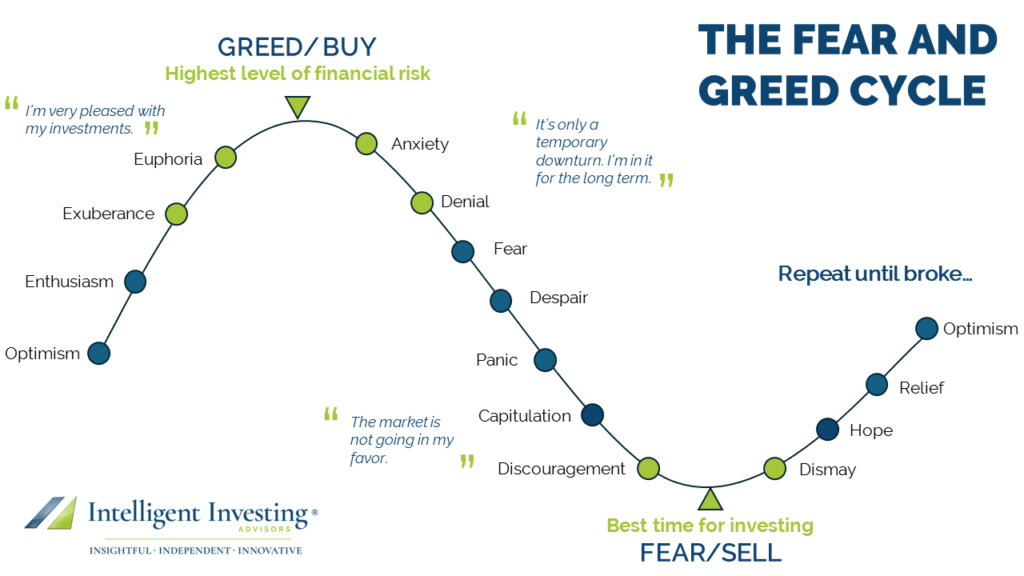Reading Time: 4 minutes
It’s been a little over a week since the Masters ended. Collin Morikawa entered the final round of the Masters in a strong position but faltered due to greed. His attempts to push the limits and outperform his competitors led to critical mistakes, ultimately costing him the tournament. Collin Morikawa, a promising golfer, learned a valuable lesson about greed during the 88th Masters tournament. His mistakes on the course serve as a poignant analogy for investors, highlighting the dangers of succumbing to greed in pursuit of quick profits. Collin Morikawa entered the final round of the 2024 Masters in a strong position, trailing leader Scottie Scheffler by just one stroke. However, he struggled during the final round, shooting a 74 and ultimately finishing tied for third place[1]. His performance serves as a reminder of the challenges of maintaining consistency and composure under pressure.
In recent years, many investors have been captivated by the allure of the “Magnificent Seven” stocks and the cryptocurrency market, particularly bitcoin. These assets have seen remarkable growth, attracting investors seeking quick and substantial returns. However, it’s essential to recognize the risks associated with these investments. The “Magnificent Seven” stocks, which include companies like Apple, Amazon, and Microsoft, have performed exceptionally well, but their valuations have reached astronomical levels, making them vulnerable to market corrections. Similarly, bitcoin and other cryptocurrencies have experienced volatile price swings, leading to both substantial gains and losses for investors.
Greed in Investing
Morikawa’s experience at the Masters highlights the importance of discipline and avoiding greed in investment decisions. Just as Morikawa’s attempts to push the limits led to critical mistakes, investors who chase quick profits in the market can often find themselves in precarious situations. Warren Buffet’s advice to Jeff Bezos underscores a fundamental truth: the allure of quick riches often leads investors astray. In bull markets, the temptation to maximize profits quickly can cloud judgment, leading to irrational decision-making.
The Cycle of Greed
As prices rise, investors flock to the market, further inflating prices and creating asset bubbles. However, these bubbles eventually burst, resulting in significant losses for those who bought in at inflated prices.
The Role of Fear of Missing Out (FOMO)
The fear of missing out on lucrative opportunities drives investors to follow the crowd, even when it may not be in their best interest. This behavior, exacerbated by social media and hype, can lead to impulsive and detrimental decisions.
The fear of missing out (FOMO) is a common psychological phenomenon that influences investor behavior. It refers to the anxiety and insecurity people feel when they believe others are experiencing something desirable that they are not. This fear often leads investors to make irrational decisions, such as following the crowd and investing in assets at inflated prices [2].
Many investors exhibit short-sightedness, focusing on short-term gains rather than long-term goals. This behavior can lead to impulsive decisions based on emotions rather than rational analysis [3]. Additionally, the tendency to follow crowds can result in herd mentality, where investors blindly follow the actions of others without considering the potential risks [4].
Intelligent Investing’s Approach
At Intelligent Investing, we advocate for a balanced and measured approach to investing, focusing on long-term goals rather than short-term gains. Our risk assessment tools and strategies help clients navigate the cliffs of fear and greed, ensuring a more stable and sustainable investment journey.
Conclusion
Greed can be a powerful motivator, but it can also be a dangerous trap. Collin Morikawa’s experience serves as a stark reminder of the perils of greed in investing. By adopting a prudent and disciplined approach, investors can avoid the pitfalls of greed and build a more secure financial future. At Intelligent Investing, we emphasize the importance of a disciplined and strategic approach to investing. By focusing on long-term goals and avoiding the pitfalls of greed, investors can build a more stable and sustainable investment portfolio.
Prudent and intelligent investors understand the importance of diversification and risk management. While it can be tempting to chase after the next big thing, these investors focus on building a well-rounded portfolio that can withstand market fluctuations. They also recognize the importance of thorough research and due diligence before making investment decisions, rather than succumbing to the fear of missing out on lucrative opportunities. By taking a disciplined and strategic approach to investing, prudent investors can protect their wealth and achieve long-term financial success.
FAQs
Q1: How can I avoid succumbing to greed in my investments?
A1: Focus on your long-term financial goals and maintain a diversified portfolio to reduce the impact of market fluctuations. Click here to schedule a complimentary call or coffee.
Q2: Is it possible to time the market to maximize profits?
A2: Market timing is notoriously difficult and often leads to suboptimal results. It’s best to focus on a consistent investment strategy rather than trying to predict market movements.
Q3: How can I determine my risk tolerance?
A3: Our complimentary risk assessment tool can help you understand your risk tolerance and tailor your investment strategy accordingly.
Q4: What sets Intelligent Investing apart from other financial advisors?
A4: Our firm’s commitment to minimizing fees, unifying families through financial communication, maximizing clients’ time, and leveraging technology sets us apart and ensures a personalized and effective approach to wealth management.
Q5: How can I learn more about Intelligent Investing’s services?
A5: Click here to schedule a complimentary consultation and learn more about how we can help you achieve your financial goals.






